US Strikes On Iranian Militia In Iraq Elicit Warning From PM
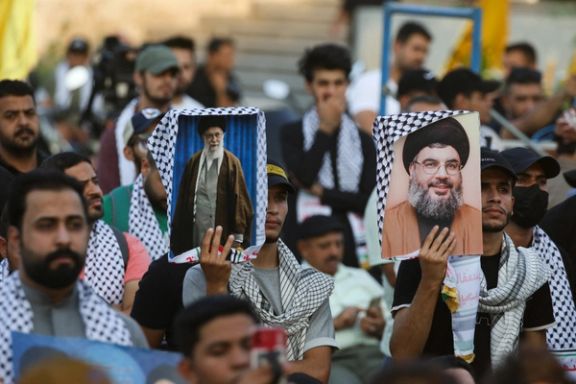
The Iraqi prime minister's office warned that US strikes on Iran-backed proxies on Tuesday would lead to an "irresponsible escalation".

The Iraqi prime minister's office warned that US strikes on Iran-backed proxies on Tuesday would lead to an "irresponsible escalation".
In a statement issued on Wednesday, the Iraqi government expressed its disapproval, deeming the operations as "aggressive actions" that undermine years of cooperation between the two nations.
"These precision strikes are in direct response to a series of escalatory attacks against US and Coalition personnel in Iraq and Syria by Iranian-sponsored militias," US Defense Secretary Lloyd Austin said in a statement.
It came as a rare response to attacks by Iran-backed Kataib Hezbollah which has been carrying out strikes on US facilities in Iraq since the war in Gaza broke out, in response to US support of Israel's retaliation following the Iran-backed Hamas invasion on October 7.
Since the war broke out, over 150 attacks on US troops in Iraq and Syria have been carried out by Iran-aligned militants.
In spite of the retaliation, Kataib Hezbollah's military spokesperson, Jaafar al-Husseini, vowed to persist in targeting "enemy bases" until the end of Israel's bombardment in Gaza, a response to Hamas attacks which killed at least 1,200 mostly civilians in a single day and saw 250 or more taken hostage to Gaza.
On Wednesday, an armed drone reportedly targeted a base housing US forces near Erbil airport in northern Iraq, according to Reuters sources. Details of the incident have yet to be released.
While Iran has refrained from direct military involvement in the Gaza war to avert a confrontation with Israel and the US, its proxy forces in the Middle East have actively targeted US and Israeli interests, along with international shipping in the Red Sea.
Presently, the US maintains 900 troops in Syria and 2,500 in Iraq, working to advise and assist local forces in preventing the resurgence of the Islamic State, which seized substantial territories in both countries in 2014 before being defeated.
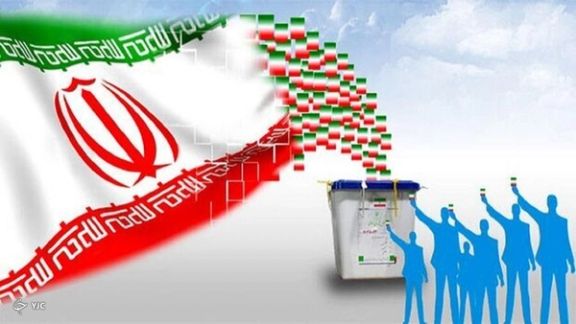
Iran's state television has announced a controversial plan to allow the parliamentary election candidates to place campaign ads on TV for hefty amounts of cash.
The March 1 election is strictly limited to ultraconservative candidates with minimal participation from other conservatives. Reformist and moderate candidates are effectively barred from running. Voter turnout is also expected to be extremely low, partly due to what former President Hassan Rouhani has called “meaningless elections.”
The state television (IRIB) is strictly under the control of Supreme Leader Ali Khamenei’s office and is the sole broadcaster in Iran.
The advertising plan which calls for up to 1,5 billion rials ($3,000) per advertisement has been widely criticized by candidates, journalists, politicians, and members of the public, as biased, unlawful and impractical. Although this can be considered a modest amount of money in other countries, in case of Iran the average employee makes a little over $200 per month.
Some have also accused IRIB managers of being greedy and wanting to accumulate cash to add to their hefty annual budget from the government, a huge advertising revenue, and ad hoc handouts in foreign currency from the National Development Fund.
Previously, limited candidate ads were allowed for presidential campaigns but the practice never applied to parliamentary elections.
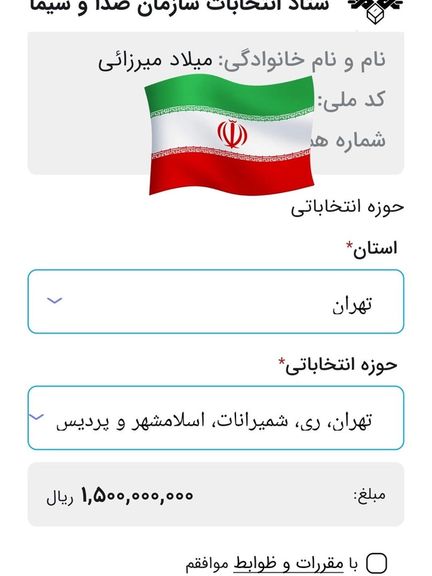
Meanwhile, according to Etemad newspaper in Tehran, based on nine different polls conducted between 2014 and 2021, IRIB's viewership has been constantly falling. In all, the broadcaster has lost over 45 percent of its viewers during seven years, due to dull programming and highly biased reporting.
According to Etemad, the latest amendment of the election law prohibits advertising election campaigns on homegrown and foreign social media and generally on the Internet.
On the other hand, IRIB Chief, Payman Jebelli, has told the Iranian government that it has prepared for launching 200 election campaign channels and will sell airtime to candidates.
Although advertising on some of Iran's Tv channels including Channel 3, which broadcasts entertainment and sports programs, and the Sports Channel which broadcasts popular athletic events, might make sense at certain times, channels dedicated to election are meaningless for viewers as interest in political activity has dropped to under 20 percent of eligible voters in Tehran as a result of people's dissatisfaction with the government's performance and their grievances about the harsh treatment of protesters in recent years.
Advertisers in Iran generally know that the best time for airing ads is before and after football (soccer) matches and major TV serials. It is reasonable to believe that the only people interested in the election campaign channels' output are likely to be the candidates, their campaign managers and a very limited number of general viewers.
On the other hand, many candidates including two of IRIB's own employees, Amir Hossein Sabeti and Mohamad Reza Ranjbaran have complained about the IRIB's pricing of advertising for candidates. As regular employees, the advertising fee is an astronomical figure for them.
Ranjbaran wrote that the IRIB is set to make around 4.2 trillion rials out of advertising for Tehran candidates alone. Sabeti wrote a letter to the IRIB Chief and published it in a series of 8 tweets against the advertising plan. In the letter, Sabeti accused the IRIB of capitalism and said it was unbelievable for him that the broadcaster demands such hefty figures for election campaigning.
Like many other social media users, Sabeti wrote that the plan was unfair as those who have money can campaign and those who do not have enough funds cannot.
In other posts on Twitter, Iranian journalist Ehsan Rastegar accused IRIB managers of profiteering and Hesamoddin Ashna, an adviser to Former President Hassan Rouhani who represented the Executive Branch of the government at the IRIB Supervisory Board from 2013 to 2021 questioned the legal basis of the pricing.
IRIB later announced that it has lowered advertising rates particularly for candidates from small towns, but rates in the capital, Tehran, seem unchanged.
Regardless of the ongoing controversy, it remains unclear how many minutes of advertising is covered by the rate charged, the format of the advertisements, the specific time slots, and frequency of airing. Etemad claims that the fee covers the airing of a 20-minute video that presents the candidates' backgrounds, plans and perspectives. However, it's worth noting that the video will undergo a review (including potential censorship) before being broadcast.
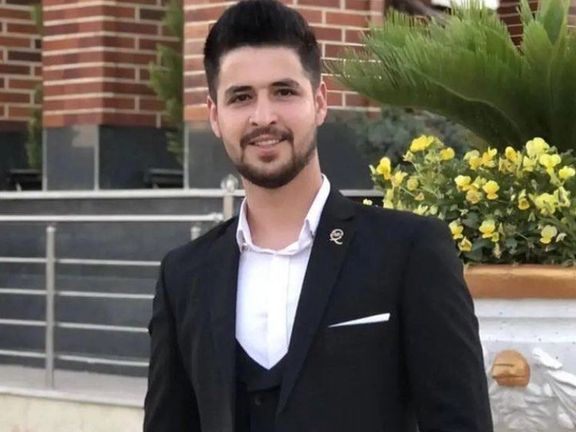
A panel of United Nations experts strongly criticized the execution of Mohammad Ghobadlou, a 23-year-old protester with a long-term psychosocial disability.
The experts including Javaid Rehman, Special Rapporteur on the situation of human rights in the Islamic Republic of Iran; and Morris Tidball-Binz, Special Rapporteur on extrajudicial, summary or arbitrary executions called on Iran to uphold its commitments under international human rights law.
“We are alarmed by reports of unfair trial proceedings in the case of Mr Ghobadlou, as well as in other cases, which fell far short of due process and fair trial standards required by international human rights law by which Iran is bound,” the UN experts said.
Ghobadlou, arrested on September 22, 2022, in connection with nationwide protests faced accusations of killing an Iranian official in Robat Karim, Tehran Province, and was sentenced to death on charges of "corruption on earth."
“We are shocked that the authorities went ahead with the execution despite the fact that Mr Ghobadlou and his lawyer had no information about the legal basis for the intended execution,” the experts said.
Additionally, they identified at least four individuals, including Mojahed (Abbas) Kourkour and Reza (Gholamreza) Rasaei, reportedly at imminent risk of execution, with at least 15 others facing the death penalty.
Concerned about the spike in executions, the experts disclosed that at least 834 people were executed in Iran in 2023, including 8 associated with the nationwide protests. They urgently called on the Iranian government to halt the ongoing wave of executions and reassess the use of the death penalty.
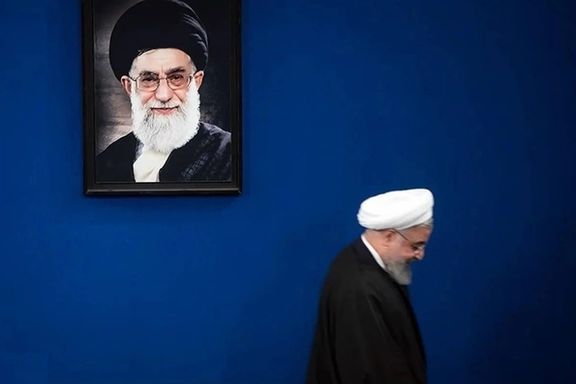
Reports from Tehran indicate that former President Hassan Rouhani has been barred from re-election at the Assembly of Experts election to be held on 1 March.
The news still awaited confirmation by the Interior Ministry when Rouhani's official account on X announced that he has been barred from running for the Assembly that is tasked with choosing the Islamic Republic's next Supreme Leader.
The interior ministry and the Guardian Council, both in charge of vetting candidates, have rejected hundreds of non-hardliners for the March vote, repeating the same tactic as was employed in the 2020 parliamentary and the 2021 presidential elections. As a result, the outgoing parliament is controlled by ultraconservatives, who also dominate President Ebrahim Raisi’s administration.
Meanwhile, moderate conservative websites such as Khabar Online, which speculated about options ahead of Rouhnai, and Nameh News, which splashed a headline saying, "The End of Rouhani," rather quickly published the first analyses about the implications of this development and Rouhani's choices and political future.
Now, Supreme Leader Ali Khamenei has effectively alienated all of Iran's former Presidents. Rouhani, the man who was believed to be one of the candidates for succession as Supreme Leader is the last one to be jettisoned out of what many see as Khamenei's sinking ship.
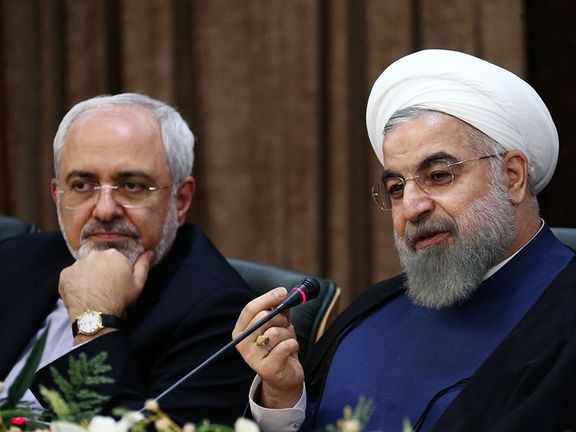
Having served as Iran's security chief for many years, as a member and deputy speaker of parliament and a member of the Assembly of Experts for several rounds, and as Iran's President for eight years, Rouhani’s disqualification sounds odd to anyone not familiar with the political and leadership dynamics in Iran.
Khamenei has not respected the loyalty of any of his obedient servants such as former Majles Speaker Ali Larijani, his close friends such as former President Akbar Hashemi Rafsanjani, and those he strongly endorsed such as former President Mahmoud Ahmadinejad. Although current President Ebrahim Raisi has never challenged Khamenei, no one can be certain what awaits him at the end.
Guardian Council Spokesman Tahan Nazifhas implied that Rouhani might have to stand trial at the Special Court for Clerics for his involvement in irregularities at the Iranian stock market. However, he said that Rouhani's final disqualification is awaiting the Interior Ministry's confirmation. Meanwhile, the Iranian Students News Agency ISNA, which was one of the first agencies to break the news of Rouhani's disqualification, called the news "a rumor" in a report published Wednesday afternoon.
Hardline politician Javad Karimi Ghoddousi, a staunch critic of Rouhani, resorted to a religious story and alluded to Rouhani's ambitions for rising to become the Islamic Republic's next Supreme Leader.
Iranian journalist Siamak Rahmani wrote that Mostafa Pourmohammadi, Rouhani's Justice Minister and the proprietor of Nameh News has been also disqualified by the Guardian Council. Meanwhile several social media users pointed out that the disqualification of Rouhani shows that the regime does not care about people's participation in the elections.
Another user wrote that it appears that everyone else other than Rouhani himself knew beforehand that he could be disqualified. One said that this was even evident from the start of the second round of Rouhani's presidency in 2017.
Talking about the next level in the Islamic Republic's power hierarchy, Maziar Khosravi, the editor of Faraz Daily website wrote in a tweet: "As the scene is set now, one must recognize Ebrahim Raisi as Iran's next Supreme Leader."
On Rouhani’s future plans, Khabar Online opined that if the disqualification is finalized, Rouhani might follow a course like Rafsanjani and become a kingmaker for the moderate camp: A position less than glamorous considering what happened to Rafsanjani, who was pushed out of the center of power and eventually died in suspicious circumstances in a swimming pool. Nameh News wrote in an analysis entitled "The End of Rouhani": "This is the final shot fired at Rouhani and the moderate camp."
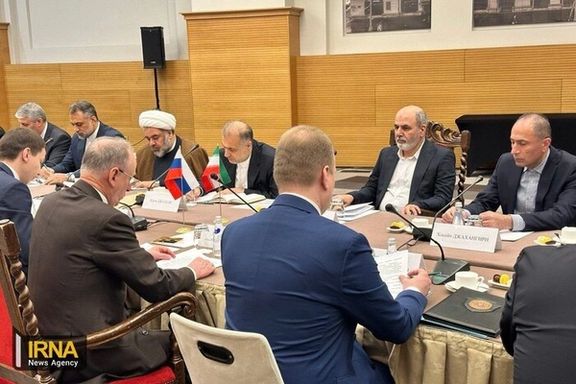
US grandeur has been shattered in the Middle East, secretary of Iran’s national security council, Ali-Akbar Ahmadian, stated during a visit to Moscow on Wednesday.
Ahmadian, who is the representative of Supreme Leader Ali Khamenei at the security council, held a meeting with the secretary of Russia’s security council Nikolai Patrushev. He told his Russian counterpart, "America's grandeur has shattered, and today, it cannot even rally its traditional allies. A country that considers itself a superpower is engaged in war against resistance groups and the people of the region."
Iran that armed and trained Hamas before the October 7 invasion of Israel, has avoided direct military conflict with Israel and the United States in the ensuing Gaza war. However, its armed proxy groups in the region have targeted US and international interests.
Yemen’s Houthis, one of Iran’s proxies, began targeting international commercial shipping in the Red Sea from mid-November, causing disruptions and forcing the US and the UK to launch airstrikes against their military bases.
Other Iranian allies in Iraq and Syria have launched more than 150 rocket and drone attacks at US forces in the two countries, to which the US military has responded with strikes.
IRNA reported that Ahmadian held talks over promised Russian investments in Iran’s oil and gas sector. Russia has signed many preliminary agreements with Iran about economic cooperation, but it has delivered very little.
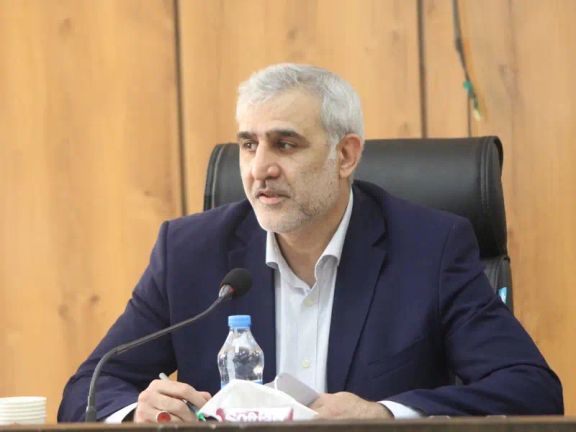
A member of Iran's National Security Commission claims that Israeli spy agency Mossad infiltrators played a role in the killing of five Quds Force members in Syria.
Morteza Mahmoudvand stated, "According to our information, the incident undoubtedly involved infiltration and intelligence operations," pointing to Mossad, the Israeli security service, as specialists in such activities, suggesting their likely involvement in the assassinations of the chiefs from the IRGC's foreign wing, the Quds Force.
“The Israeli security service known as Mossad specializes in that exactly – undoubtedly, it has been at the forefront of infiltration and intelligence work.”
Some Iranian critics of the regime have also mocked the IRGC for having been infiltrated by Israel.
Syria's state-run SANA news agency attributed the Saturday attack in Damascus to Israel. The Islamic Revolutionary Guard Corps (IRGC) confirmed the loss of four members in the airstrikes, with a fifth succumbing to injuries later. Subsequently, Iran-backed militant groups in Iraq launched rockets at Assad Air Base in Anbar province, where US forces are stationed.
In response to the killings, Iranian Parliamentary Speaker Mohamad Bagher Ghalibaf warned of "severe punishment" for Israel. Iran has consistently threatened Israel with severe consequences for its alleged role in the deaths of IRGC commanders and forces in the region though Tehran has refrained from direct attacks.
In December, Razi Mousavi, also known as Seyyed Razi, was killed in an Israeli airstrike near Damascus. He was responsible for overseeing logistics and military coordination for the Islamic Revolutionary Guard Corps (IRGC) in Syria. His role included acquiring weapons and coordinating activities for Iran-backed forces in both Syria and Lebanon.